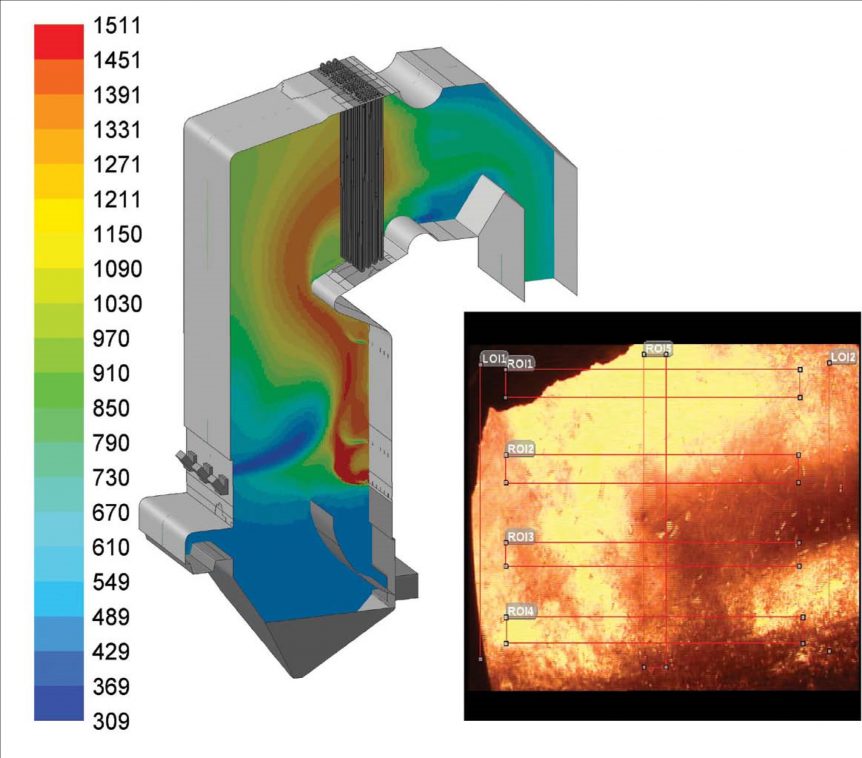Market pressures on more cost effective,energy efficient and environment-friendly boiler designs are increasing continuously. Additionally, the challenges faced in boiler design and combustion technology demand more accurate engineering methods. To meet these demands John Thompson’s team of experienced engineers are armed with state of the art engineering tools through the company’s investment in Computational Fluid Dynamics (CFD) technology. The combustion process inside a modern watertube boiler is a complex phenomenon, consisting of numerous chemical reactions all of which play an important role in boiler performance. Traditionally these boilers were designed using lumped thermal models of the combustion reactions to determine fluid composition and properties. However, these methods required empirical correlation factors that may not have been appropriate for all applications.
Computational Fluid Dynamics
CFD technology enables engineers to model the combustion process and related physics of various fossil- and biomass-fired watertube boilers and resolve any design and operating problems before manufacture and commissioning. When doing these computations different physical models are implemented in the code to simulate the process. Physics in the CFD model include: tracking of the fuel particles, evaporation and devolatisation of these particles,surface combustion on the fuel particles, the combustion process in the gas, radiation heat transfer and pollution formation. A high level of geometric detail is included in the model to capture certain key results. The geometries considered in detail are the fuel spreaders, the combustion air system and furnace. The tube banks of the various heat exchanger sections are also included. The results from the CFD analysis show the temperature contours, flow patterns, and gas composition throughout the boiler. The image on the right shows combustion gas temperature contours displayed on a plane through the centre of the boiler model. The image on the far right is a still image of a video clip taken with a thermal camera at grate level. These more precise calculations and data enable us to keep improving our boiler designs which are Industry benchmarks.
Industrial Applications
Due to the fact that CFD links the flow characteristics with the chemical reactions of combustion it is an ideal platform to investigate enhancement of fuel and air mixing, time for combustion and temperature of reaction. This leads to better combustion with difficult fuels and also higher plant efficiency with lower emissions. The interaction of the 3D flow and temperature fields with the fuel particles allows analysis of new fuels with regard to fouling and corrosion.Erosion is of particular importance for biomass fuels and CFD has been proven to predict wear patterns realistically.Due to recent advances in computer hardware, complex models built on a CFD platform have become feasible for industrial use. This provides a unique opportunity to investigate cleaner and more efficient energy from thermo-chemical conversion. The challenges ahead are to further develop CFD models to include more detail and accuracy through on-site validation.
View Computational Fluid Dynamics Advert pdf


